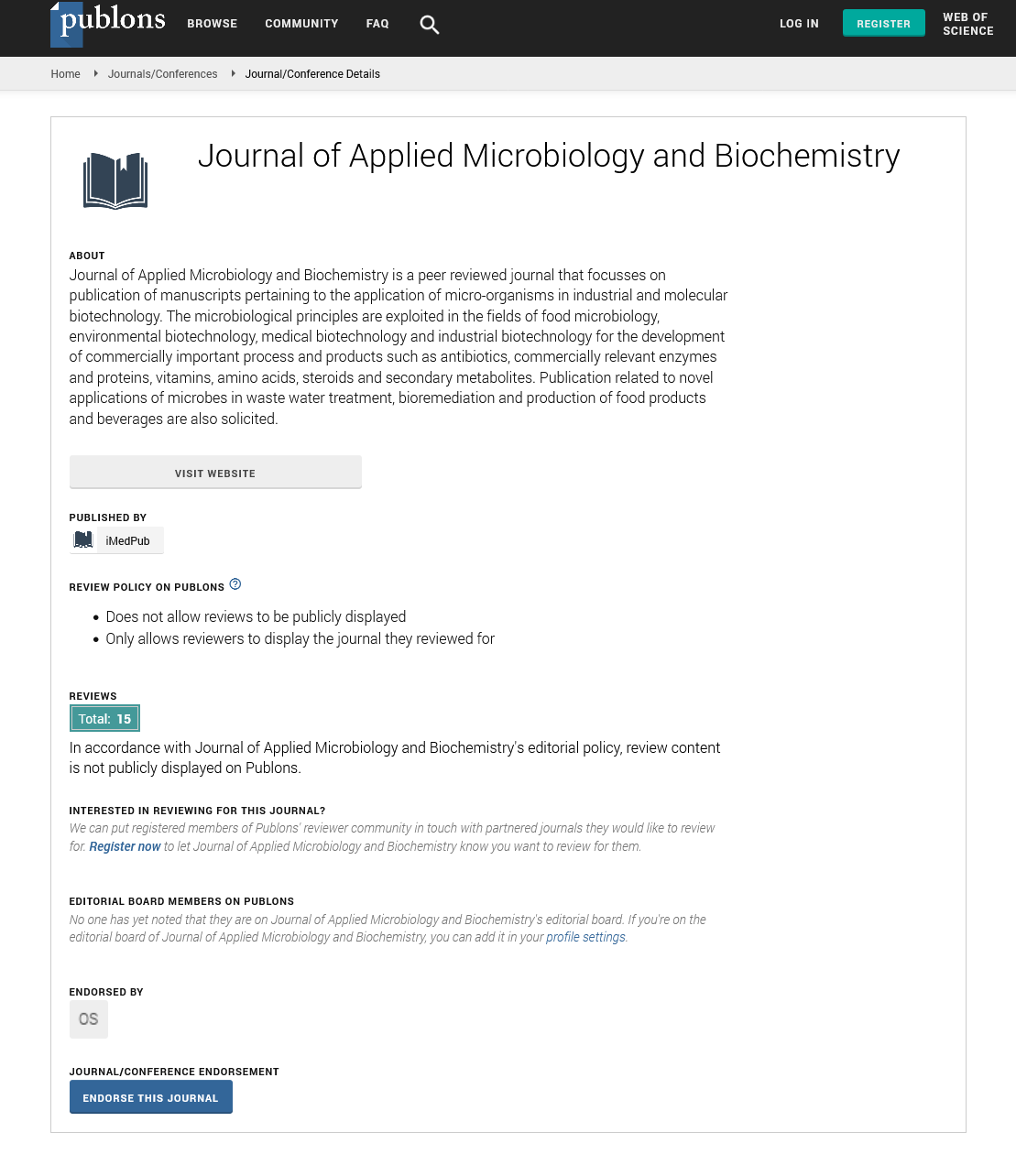ISSN : ISSN: 2576-1412
Journal of Applied Microbiology and Biochemistry
Abstract
Impact of Nationwide Antibiotic Administrative Programmes on Antibiotic Usage and Antibacterial Resistance for Clinical Isolates Over a Two-year Period in 14 Chinese and 5 Swedish Tertiary Hospitals
The aims of this 2-year multicentre study are to systematically evaluate and establish a reference baseline for the resistance of clinically relevant bacterial isolates in 14 tertiary hospitals in China and 5 Swedish hospitals and to characterise the current use of antibiotics in these hospitals. We also aimed to assess the impact of national antibiotic administrative policies on antibiotic use and resistance patterns of the leading nosocomial pathogens in the hospitals.
The present study was done at a time when Chinese health authorities launched a campaign to discourage over prescription of antibiotics. At present, it seems their efforts are having a meaningful impact. Following the implementation of the intensive control programme in Chinese tertiary hospitals, we found that the consumption levels of parenteral antimicrobials were reduced and accompanied by a significant increase in susceptibility patterns of both Gram-positive and Gram-negative bacteria, including ESBL-producing organisms. During the 2-year study period, no significant change in the level of resistance to commonly used antibiotic groups could be noted in the clinical isolates from the five Swedish tertiary hospitals.
Author(s): Yong Yu, Hua Yu, XiaoqiangYang, Qing Yan, Lars Berglund, Yonghong Xiao and Staffan PE Sylvan
Abstract | Full-Text | PDF
Share This Article
Google Scholar citation report
Citations : 342
Journal of Applied Microbiology and Biochemistry received 342 citations as per Google Scholar report
Journal of Applied Microbiology and Biochemistry peer review process verified at publons
Abstracted/Indexed in
- Google Scholar
- China National Knowledge Infrastructure (CNKI)
- Cosmos IF
- Directory of Research Journal Indexing (DRJI)
- Publons
- Secret Search Engine Labs
Open Access Journals
- Aquaculture & Veterinary Science
- Chemistry & Chemical Sciences
- Clinical Sciences
- Engineering
- General Science
- Genetics & Molecular Biology
- Health Care & Nursing
- Immunology & Microbiology
- Materials Science
- Mathematics & Physics
- Medical Sciences
- Neurology & Psychiatry
- Oncology & Cancer Science
- Pharmaceutical Sciences
